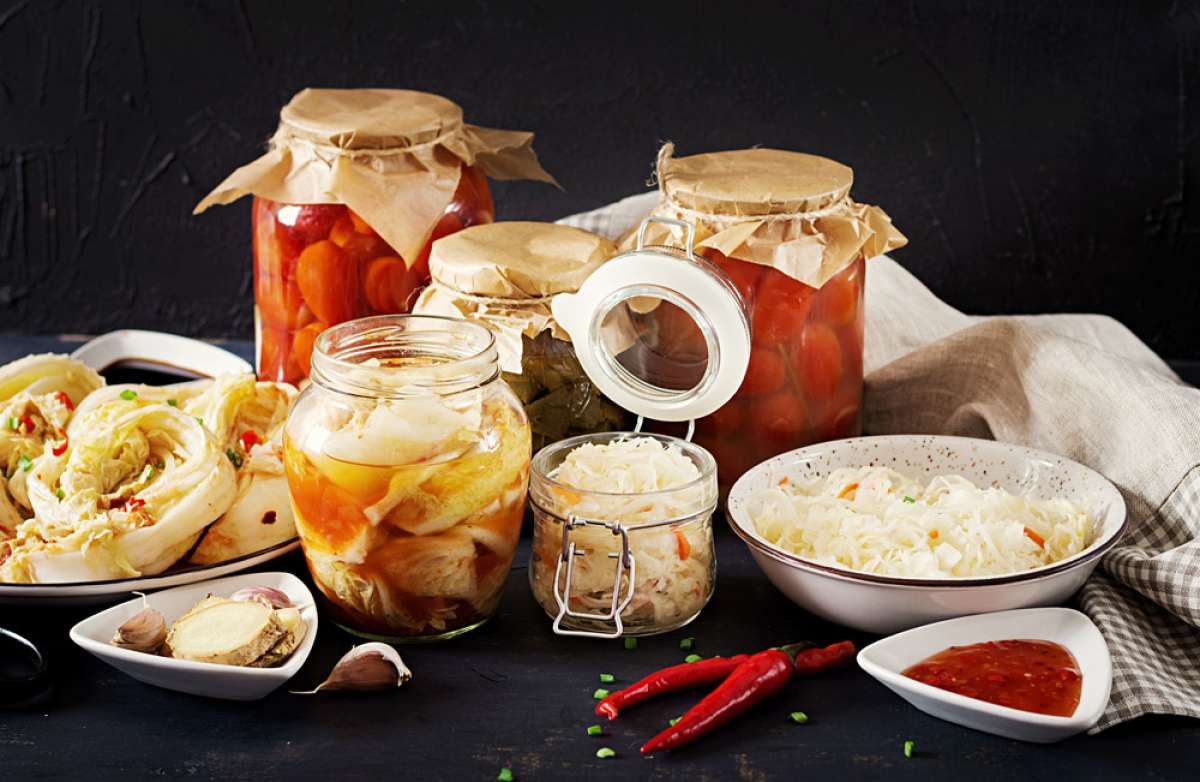Mumbai’s fermentation renaissance: Gut health and kokumi magic
Fermented foods are igniting Mumbai’s culinary scene — blending time‑honored traditions with probiotic powerhouses from achaars and dosas to artisanal kombuchas
Fermented foods are experiencing a renaissance in Mumbai's vibrant food scene, not just as a nod to tradition but as a celebration of gut health, sustainability and complex flavours that are more than just the simple tang of sourness.
With digestive health becoming a growing concern among Mumbaikars, these probiotic powerhouses are moving from grandmother's kitchens to trendy cafés and fine dining establishments.
The science behind the fizz: Fermentation and kokumi
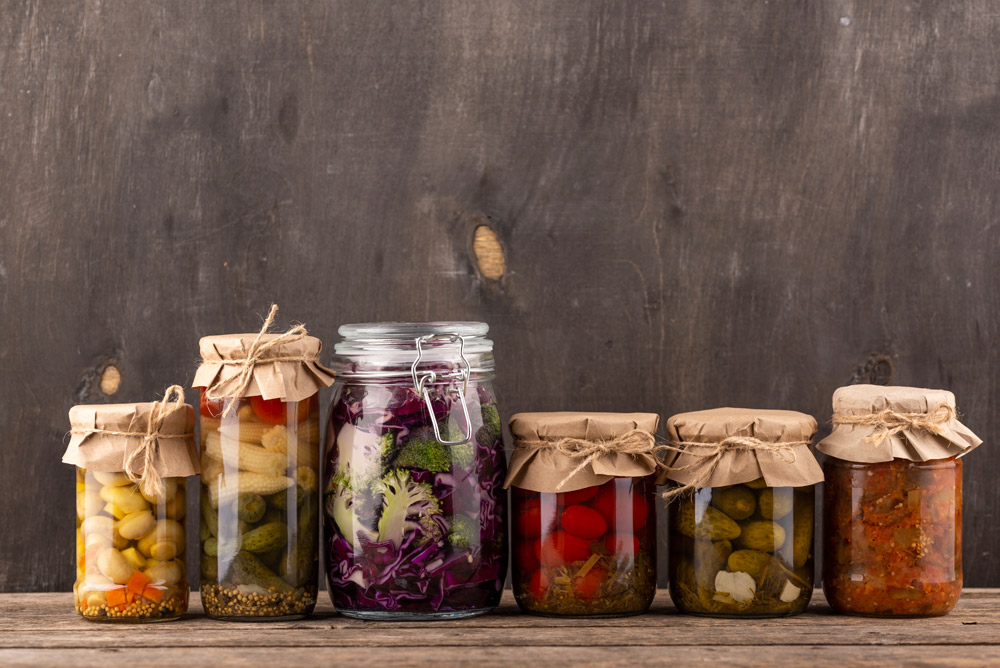
At its core, fermentation is a process where bacteria, yeast, or other microorganisms chemically break down a substance. This delivers two fundamental benefits that our ancestors intrinsically understood: aiding digestion by pre-digesting food and preserving perishable items. This ancient technique, with roots in Ayurveda's 5,000-year-old tradition, has given us everything from curd and bread to beer and pickles.
But beyond preservation and probiotics lies a fascinating flavour dimension that modern gastronomy is just beginning to appreciate fully: kokumi. While perhaps not native to Indian cuisine, this Japanese concept offers a framework for understanding why many fermented foods are so deeply satisfying. Unlike umami, kokumi doesn't have a distinct taste of its own but rather amplifies and prolongs the perception of other flavours. It creates a sensation of "mouthfulness" – a richness and roundness that takes dishes to new heights.
The magic happens when kokumi compounds – found in fermented foods like aged cheese, fish sauce and in our context, Indian pickles and fermented batters – activate calcium receptors on the tongue, intensifying flavour signals to the brain. This makes everything from savoury stews to sweet treats more craveable, with ingredients like garlic, onions and certain types of seaweed known for their kokumi-enhancing properties.
Mumbai's fermented food tapestry
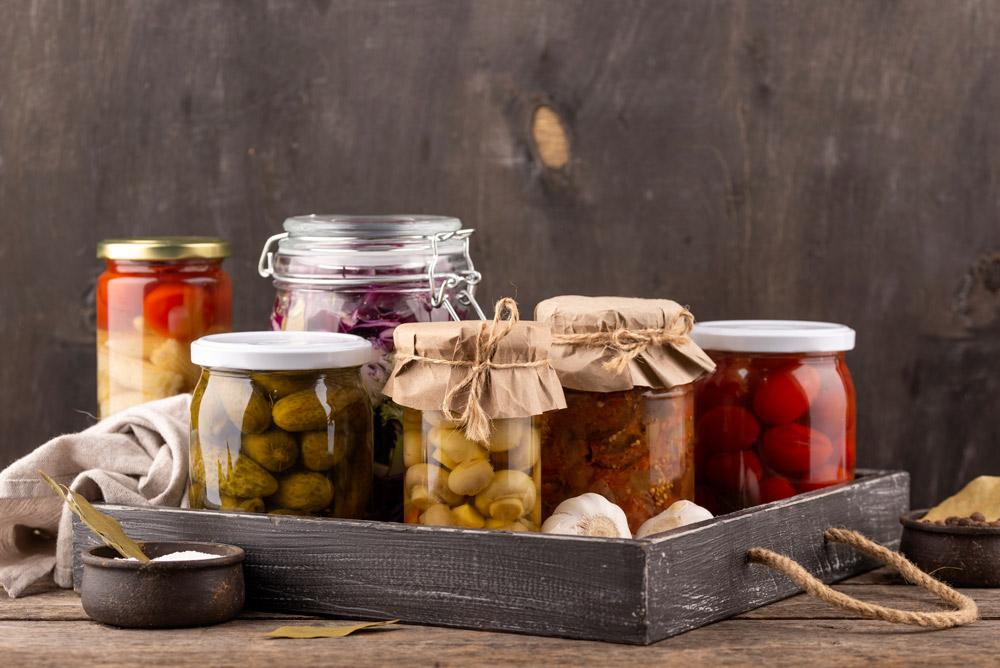
Look at any Indian kitchen counter and you'll spot the unsung heroes of fermentation. While the world catches up with kefirs and kombuchas, Mumbai's fermentation story has been hiding in plain sight for centuries – less a culinary technique than a sort of inherited wisdom, passed down through generations.
At Noon, located in Mumbai's Bandra Kurla Complex, Chef Vanika Choudhary houses over 150 different ferments in large, colourful glass vats. But don't expect run-of-the-mill miso or kimchi here. Choudhary draws from her roots, using ingredients indigenous to India's rich landscapes. "I did not grow up around Japanese or Korean ferments like soybean miso, garum, or amazake, but rather achaar (Indian pickles), kanji (a carrot-based spiced drink) and kaa'nz (fermented rice water)," she explains.
Noon isn’t alone in championing the art of fermentation in Mumbai’s culinary scene. At Qualia, Rahul Akerkar, a biochemist-turned chef, takes a science-driven approach, infusing nearly every dish with the magic of fermentation. Jars of house-made pickles — think fermented cucumbers, celery, honey-fermented berries, garlic, corn and tomato — line the kitchen, adding depth and complexity to contemporary plates.
Traditional ferments like achaar (Indian pickles) hold a special place in Mumbai's culinary landscape. Unlike their Western counterparts, Indian pickles use various regional spices along with salt and don't rely on brining. For meat variations, vinegar is usually added to ensure longevity. The essential process happens when salt breaks down sugar into lactic acid, preserving the ingredients while developing complex flavours.
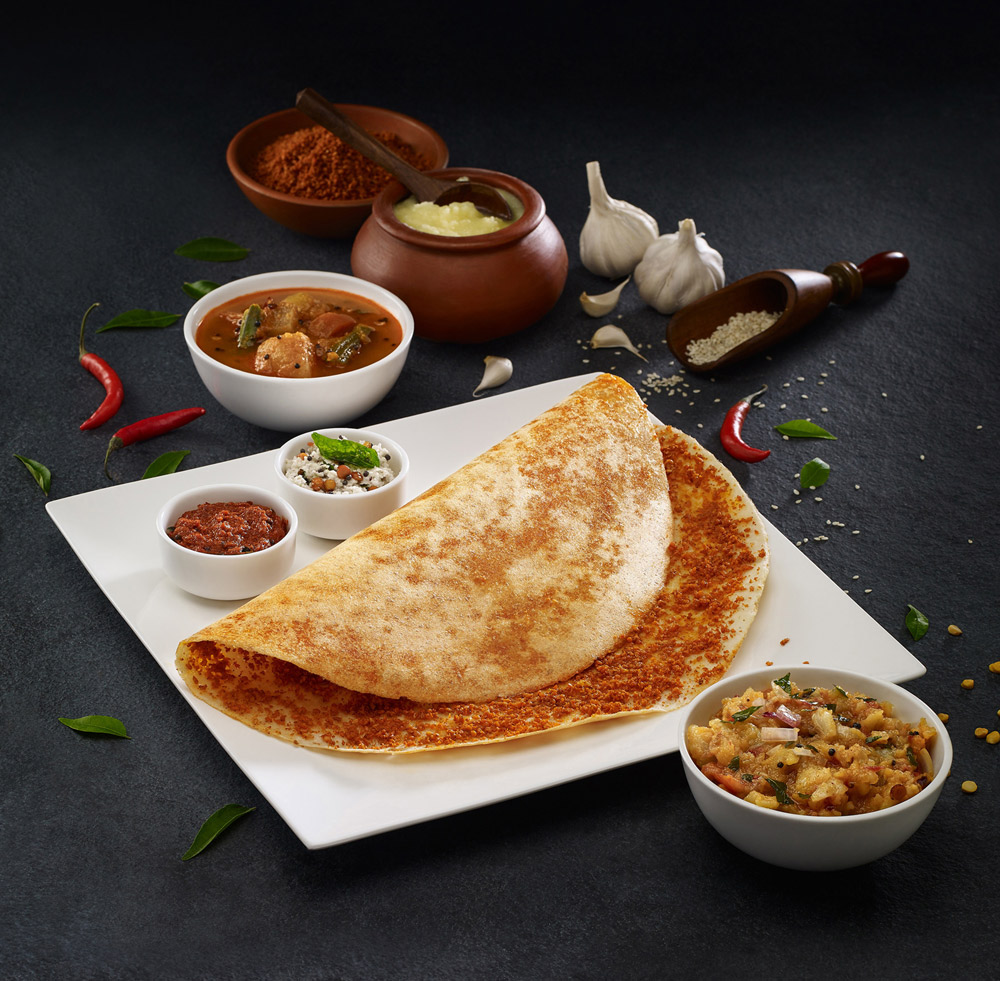
South Indian staples like idli and dosa, made from fermented rice and lentil batters, have also found a home in Mumbai's diverse food scene, bringing with them the probiotic benefits of fermentation alongside their distinctive sour notes.
DIY probiotic: Modern recipes with traditional roots
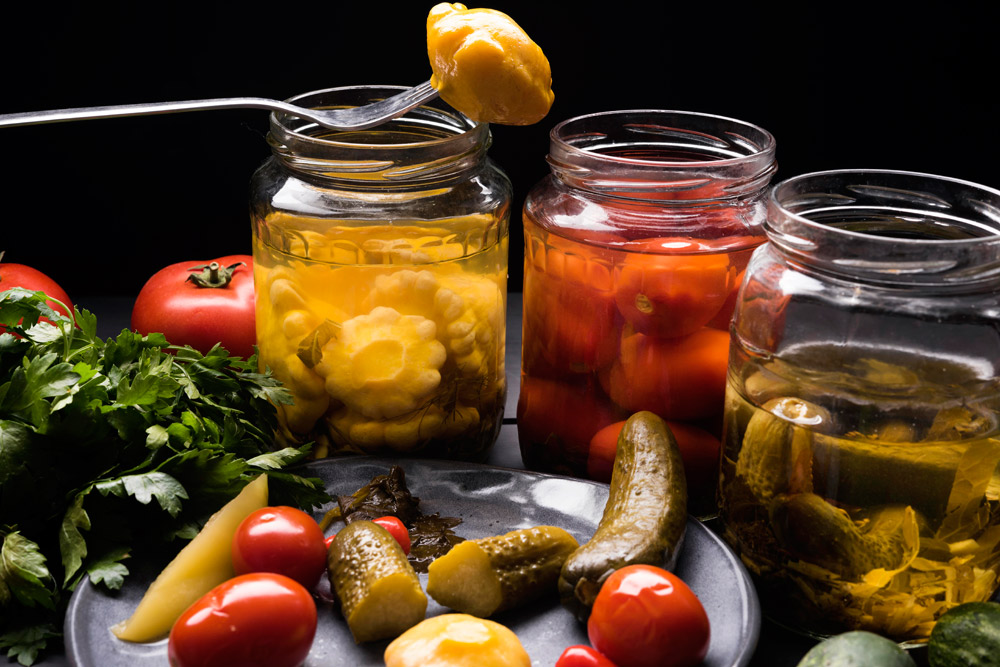
With just a few ingredients and some patience, you can create probiotic-rich foods at home. Here's a simple recipe for what food expert Luke Coutinho calls "The Great Indian Probiotic" – a technique that has existed in Indian culture for decades:
What you need:
- A large glass/ceramic jar
- 3-4 medium-sized dark beetroot (or 4-5 carrots)
- A tablespoon of rock salt/black salt/Pink Himalayan salt
- A tablespoon of mustard seeds
Steps:
- Fill the jar with 1 litre of water
- Add a tablespoon of salt and crushed mustard seeds
- Julienne your beetroot/carrot and add them to the mixture
- Cover with a lid or a thin muslin cloth
- Store for five to six days near a windowsill, allowing exposure to both sunlight and shade
- Every third day, stir the contents with a wooden spoon
- After a week, taste it – if tangy and sour, your probiotic drink is ready
Strain and enjoy a glass daily. The fermented vegetables can be eaten like a pickle with your meals.
Where to find your kombucha fix
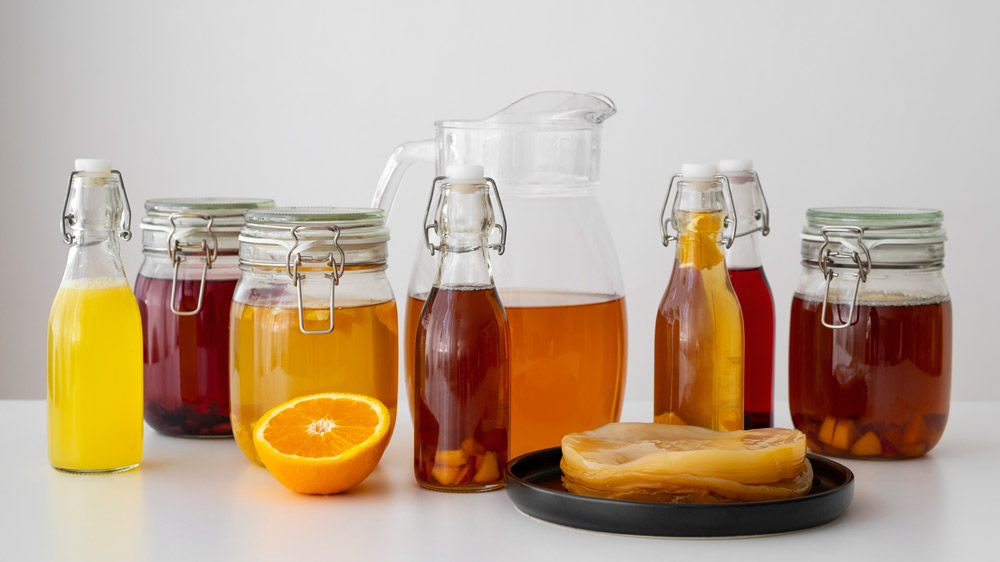
Bombucha: The pioneers of bringing kombucha to Mumbai, they offer 17 unique flavours including kanji, matcha gogi and elderflower. They brew using only green or black tea with a SCOBY imported from the US and support sustainable packaging by requiring bottle returns.
The future
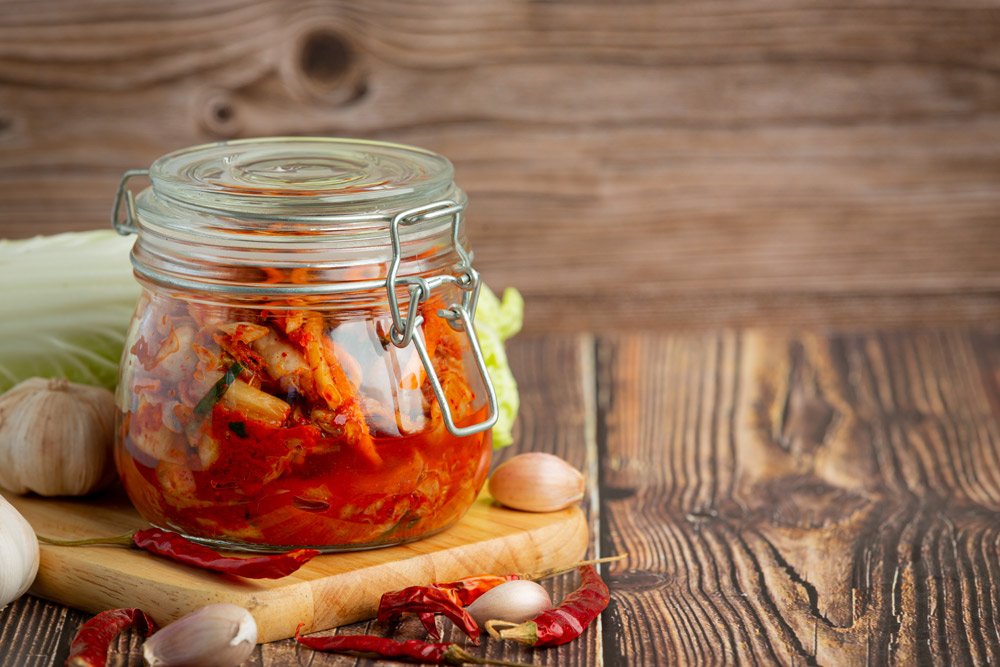
Mumbai's fermentation renaissance represents more than just a culinary trend – it's a return to our roots with a modern understanding of why these techniques have endured for millennia. From the kokumi-rich complexity of a perfectly aged pickle to the effervescent tang of locally brewed kombucha. As we navigate increasing concerns about digestive health in our fast-paced urban lives, these ancient practices offer wisdom that feels surprisingly current.
Whether you're picking up a bottle of kombucha from a local brewer, savouring the complex flavours at restaurants like Noon or channeling your inner grandmother with homemade ferments, Mumbai offers countless opportunities to explore the transformative power of beneficial bacteria, proving that sometimes, the most innovative flavours come from the oldest techniques.
Got any food fermentation or probiotic hacks that you’d like to share with us? Let us know in the comments!

